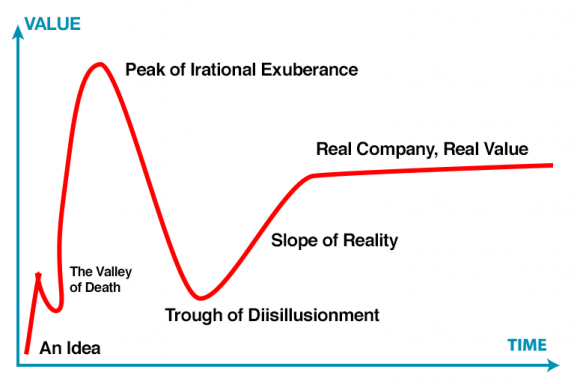
A few times per year I’m reminded that what I do for work is completely unrelated to what I studied in college. Or at least it seems that way on the surface.
I studied Mathematics and Computer Science for my Bachelors degree, then Computer Science and Engineering for my Masters. I’m thus trained as a reductionist, a logician, a bit of engineering, and a lot of focus on proving how something us true rather than believing in faith.
All that is quite useful when analyzing companies as a mentor, advisor and investor. But of all that, one of the most important lessons I learned is to how to seek out the edges of the problem, in an effort to see if a computer algorithm was going to actually work or not. We call that “looking at the edge cases.”
For startups, the first edge comes quickly. It’s the first customer. I’ve written before about entrepreneurs who envision their product at scale, but don’t have a clue how to get the first dozen customers to sign up. And I’ve written about the entrepreneurs who want to solve vast problems, but who can’t solve any one simple problem first.
There are other edges cases to worry about too:
What to do when an early customer asks for a custom solution? Do you say yes to every request, or stick with your plan and say no?
Your financial model outputs a single amount of capital to raise. Is that actually the only choice or is it is one of many? (Hint, it’s almost always the latter).
Breaking down your business into its component parts, do you really need to do all of them yourself? Is there one that is currently outsourced that you should be doing internally?
Looking at your team, who does what, how is that decided, how is that tracked, how does that get changed as more people are hired?
What is the likely next thing to break as your company grows? If I handed you that number from your financial plan, where is the plan most likely to not come true? Revenues too high? Expenses too low? (Hint, yes and yes) Too few employees? Not enough marketing? No redundancy in equipment?
Looking for edges is part of planning for failure. The one thing we know about startups is that they run into hurdles. Seeing the hurdles coming can be the difference between success and failure. Having a mentor who has seen this issues before and can predict which are likely to come is one way for first-time entrepreneurs to deal with what is otherwise the unknown.
In 99% of startups, these issues are not unknown, they are just edges that other starts have run into in the past.














